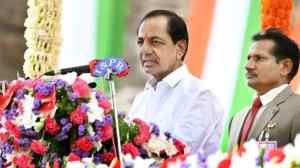Adopt new tech to curb pollution, segregate effluents: GPCB official
“Through experience, we came to know that a cocktail of effluents is not a solution. We need to go for segregation and need a cocktail of technologies to treat them. We are now trying to focus how we can reduce at source (of effluents),” he said while addressing an audience comprising of owners of MSME textile units.

Textile units in the state should adopt newer technologies to curb pollution and segregate effluents at source, said DM Thaker, member secretary of the Gujarat Pollution Control Board (GPCB), on Thursday.
“When Sabarmati river pollution is being talked and deliberated even in High Court, there is more responsibility on our shoulders as an important stake holder in the whole process,” said Thaker.
He was speaking at a seminar on “Impact of Pollution in Textile Industries and Solutions Through Innovative Technologies” organised at the Gujarat Chamber of Commerce and Industry (GCCI).
“Through experience, we came to know that a cocktail of effluents is not a solution. We need to go for segregation and need a cocktail of technologies to treat them. We are now trying to focus how we can reduce at source (of effluents),” he said while addressing an audience comprising of owners of MSME textile units.
Gujarat has three major textile hubs at Narol in Ahmedabad, Surat and Jetpur. While Narol largely focuses on cotton, Surat is man-made fibre, while Jetpur is largely related to hand-drying and other activities.
“Earlier there were no technology available for tertiary and advance treatment. But now we have lot of options available,” the GPCB official said giving examples. At present, effluents are sent for treatment as a “concentrated stream”.
“One has go for a leapfrog in technology. You cannot be complacent saying that others are not doing and so I won’t do,” Thaker said, adding unlike Gujarat’s pharmaceutical sector, the R&D base for textiles, chemicals and dye sector was “weak”, hindering innovation.
Cabinet minister for forests and environment Mulu Bera, additional chief secretary of the department Arun Kumar Solanki and GPCB chairman RB Barad also visited GCCI later and released a booklet providing guidance to the industries, e-services for vehicles carrying effluents and online final consent orders.












